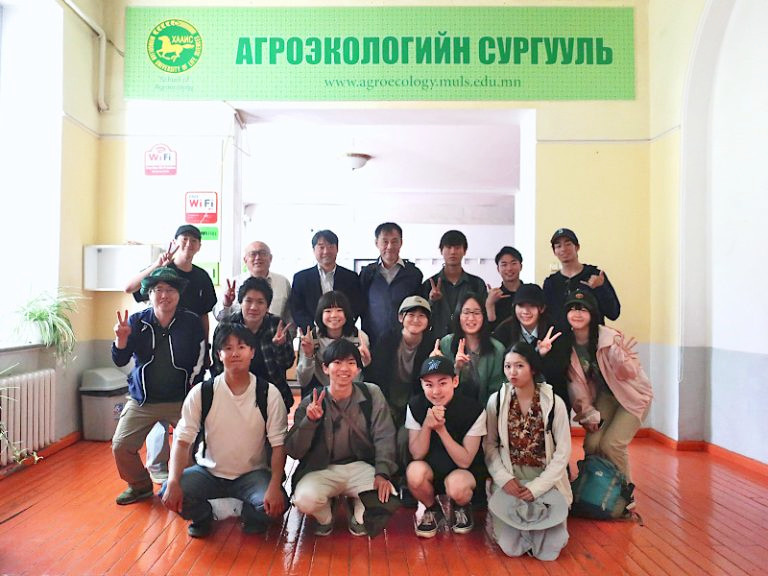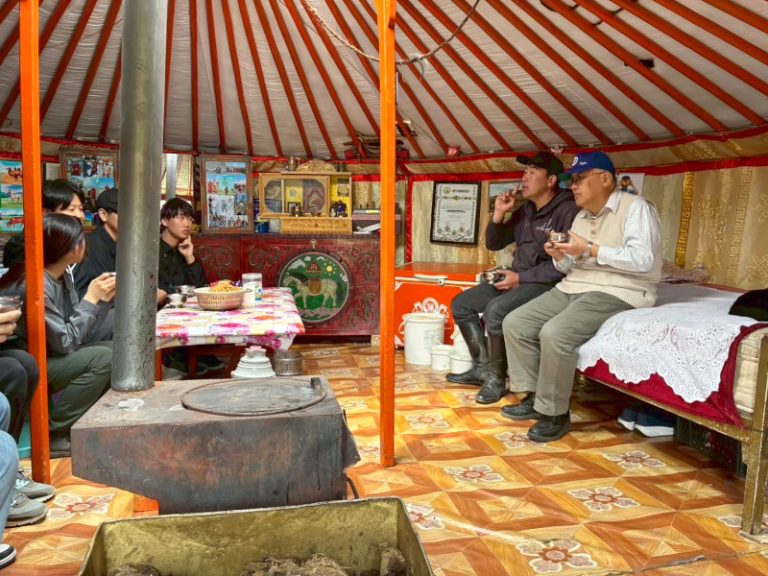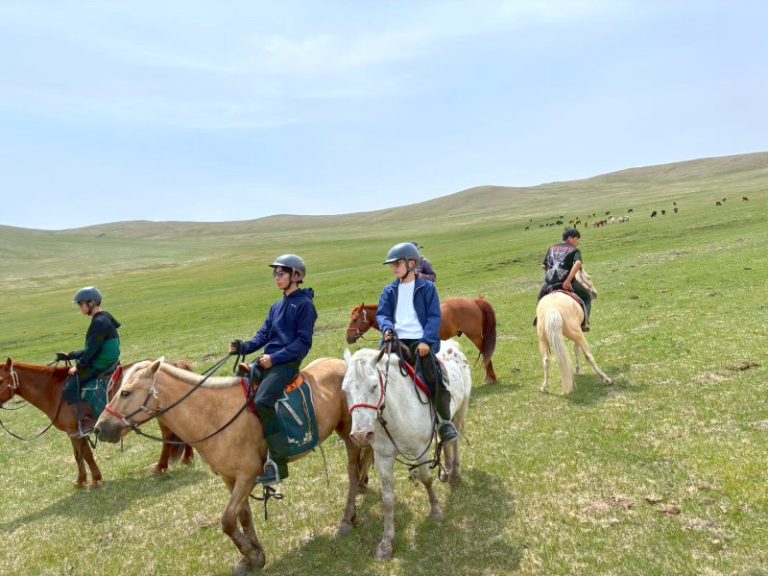[School of Agriculture] Implemented an overseas agricultural experience program in Mongolia
Oct. 07, 2025

Visiting the National Agricultural University of Mongolia
The Department of Agri-Food and Environmental Policy of the School of Agriculture conducted the practical training course Overseas Agricultural Experience in Mongolia from June 6 to 12. This course has been offered to second-year students since the 2009 academic year. Its purpose is to deepen students’ understanding of agriculture, society, and economics abroad through hands-on farming experiences overseas and interactions with local farmers and agricultural businesses. This year’s fieldwork was conducted in the capital city of Ulaanbaatar and its surrounding areas, with 14 students participating under the supervision of two faculty members.
During visits to nomadic herders, students observed their livelihoods and culture, witnessed milking and grazing activities, and experienced horseback riding. Additionally, they learned about Mongolian history at the museum and gained a deeper understanding of Mongolia’s leather processing (light industry) at the tannery and shoe factory.
At the Agro Park, the farm of the National Agricultural University of Mongolia, they studied horticultural crops. With its low average temperatures, Mongolia has a short growing season, relying on imports for most vegetables. In recent years, the country has been focusing on increasing its vegetable self-sufficiency rate. Agro Park features solar greenhouses, glasshouses, plastic greenhouses, and water storage facilities, where research is conducted primarily on vegetables and ornamental plants.
At the Japan International Cooperation Agency (JICA) Mongolia Office, the students learned about the Market-oriented Agriculture Promotion Project (MON-SHEP), a technical cooperation project implemented by JICA in Mongolia. Through a series of activities based on the SHEP Approach, an initiative to support smallholder farmers, this project is advancing the development of an effective market-oriented agriculture system to promote domestic vegetable production by utilizing facilities to extend the growing seasons and equipment for cold protection and by transferring technology for planned vegetable production and distribution methods to small and medium-sized farmers and agricultural extension workers.
Students who participated shared feedback such as: “I gained insight into the reality of international cooperation. It’s not just about one-way support like building structures or teaching skills; it’s about supporting local people until they recognize the issues as their own problems and take action. This experience reaffirmed that such careful engagement is essential for sustainable support. The SHEP topic was especially memorable; the perspective that agricultural support must engage not only techniques but also awareness was refreshing.” These reflections revealed the profound learning outcomes achieved through this practical training.

Observing nomadic life in a ger (dwelling)

Experiencing horseback riding
Related link


